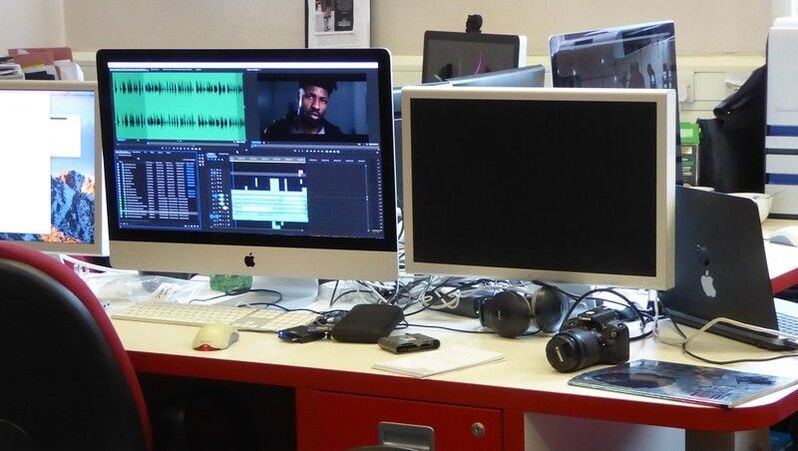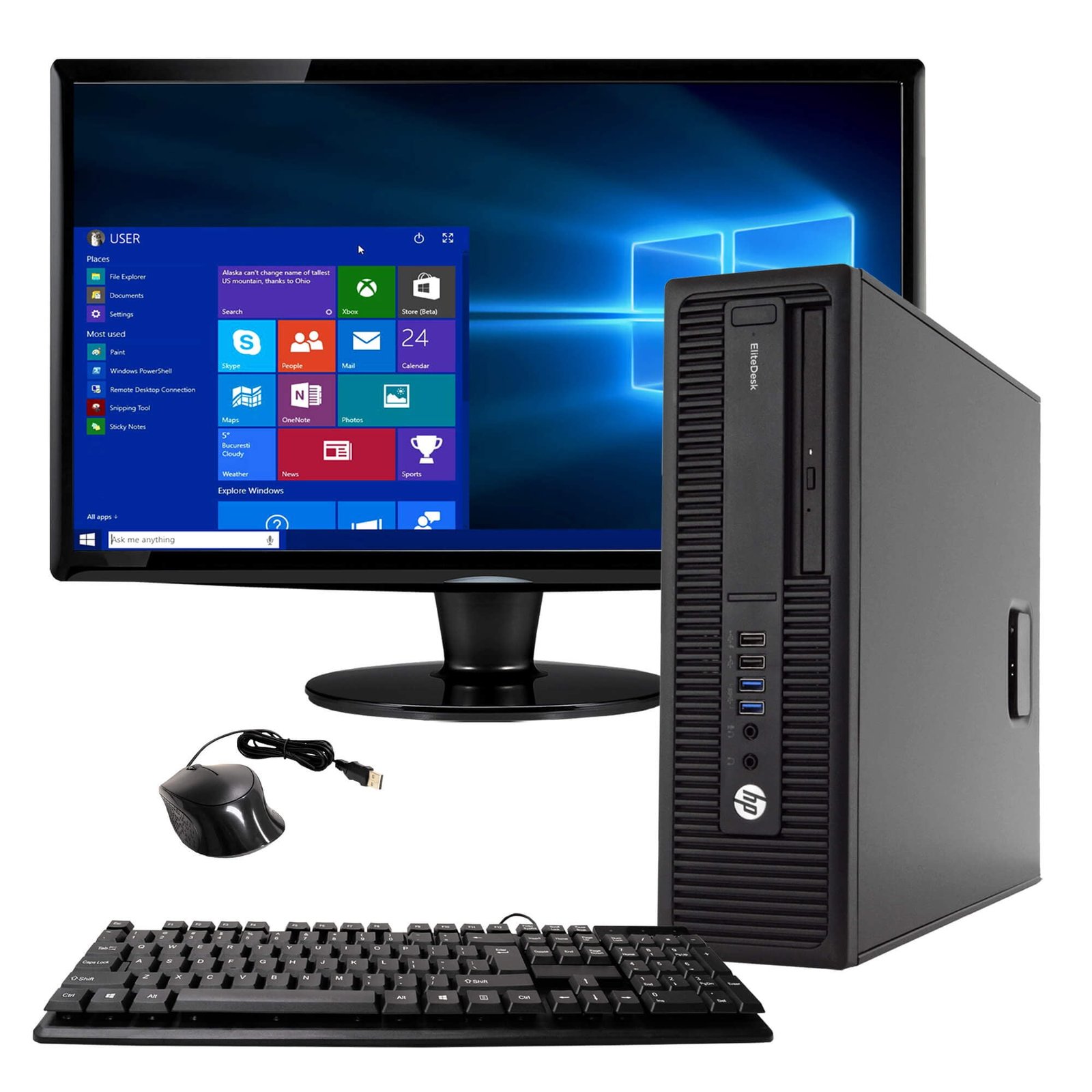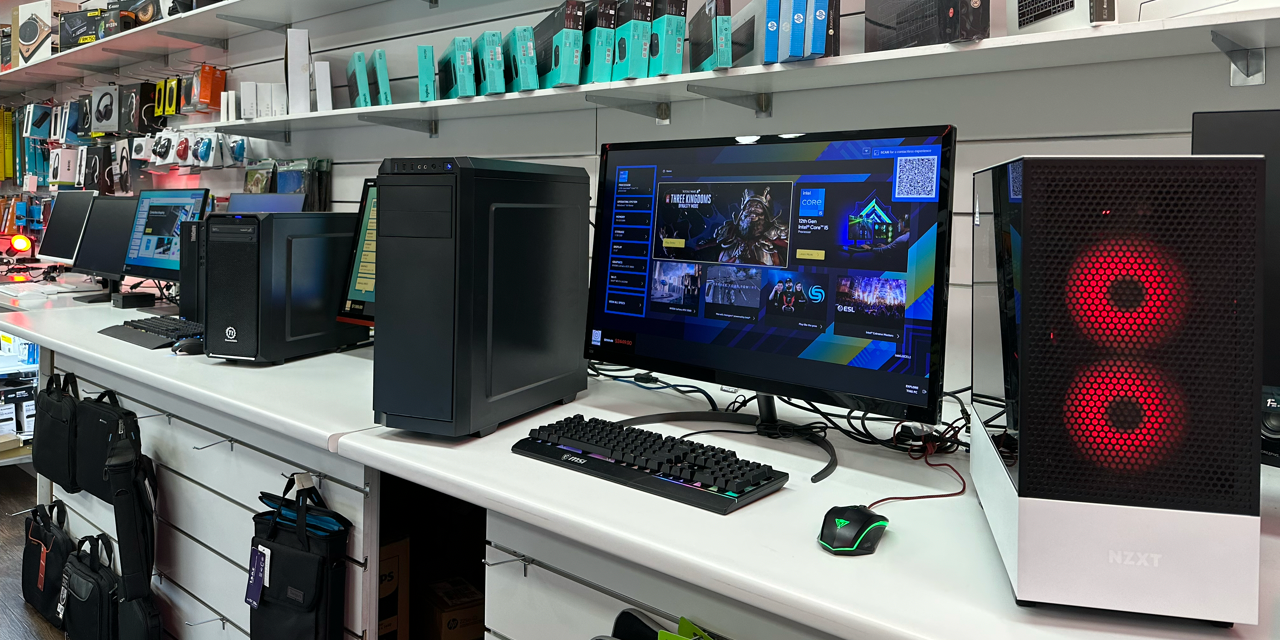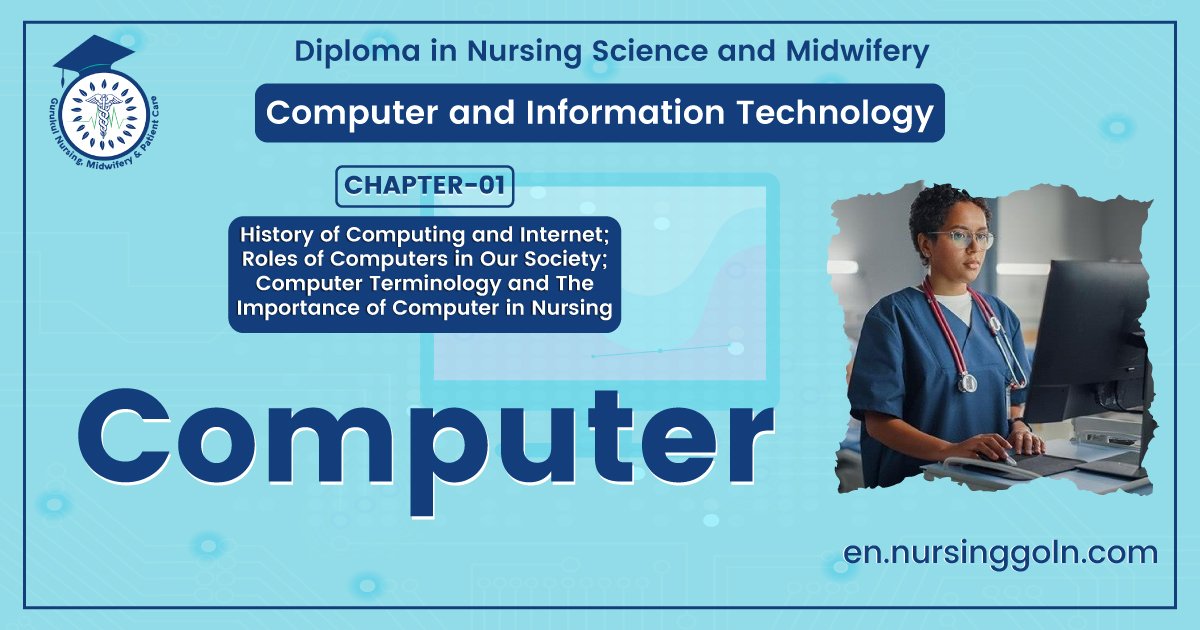Concept about Computer – This book covers the entire syllabus of “Computer & Information Technology” prescribed by the BNMC for B.Sc. in Nursing Science & Diploma in Nursing Science & Midwifery students. We tried to accommodate the latest information and topics.
This book is an examination setup according to the teachers’ lectures and examination questions. We hope in touch with the book students’ knowledge will be upgraded and flourished. The unique way of presentation may make your reading of the book a pleasurable experience.
Concept about Computer
Computer is an electronic device that is designed to work with Information. The term computer is derived from the Greek word ‘compute’, this means to calculate or programmable machine. Computer cannot do anything without a Program. It represents the decimal numbers through a string of binary digits.
The Word ‘Computer’ usually refers to the Center Processor Unit plus Internal memory.
Charles Babbage is called the “Father” of the computer. The First mechanical computer designed by Charles Babbage was called Analytical Engine. It uses read-only memory in the form of punch cards.

Computer is an advanced electronic device that takes raw data as input from the user and processes these data under the control of set of instructions (called program) and gives the result (output) and saves output for the future use. It can process both numerical and non-numerical (arithmetic and logical) calculations.
A computer is often referred to as a data processor because it can store, process, and retrieve data whenever desired. The name data processor is more inclusive because modern computers not only compute in the usual sense but also perform other functions with data that flows 0 and from them. For example, data processors may gather data from various incoming, sources, merge (process of mixing or putting together) them all, sort (process of arranging in some sequence ascending or descending) them in the desired order, and finally print them in desired format. Notice that none of these operations involves arithmetic computations in the usual sense but a computer is the most suitable device for performing them.
Definition of Computer:
“A Computer is an electronic machine that can solve different problems, process data, store & retrieve data and perform calculations faster and efficiently than humans”.
Or,
Computer is an electronic device which is used to store the data, as per given instructions it gives results quickly and accurately.
Or,
A computer is an electronic data processing device capable of receiving input, storing set of instruction for solving problems and generating output with high speed and accuracy.
Or
A computer is a machine or device that performs processes, calculations and operations based on instructions provided by a software or hardware program. It is designed to execute applications and provides a variety of solutions by combining integrated hardware and software components.
Uses of Computer in Different Sector:
A. Education: Getting the right kind of information is a major challenge as is getting information to make sense. College students spend an average of 5-6 hours a week on the internet. Research shows that computers can significantly enhance performance in learning. Students exposed to the internet say they think the web has helped them improve the quality of their academic research and of their written work.ề bài làn
B. Health and Medicine: Computer technology is radically changing the tools of medicine. All medical information can now be digitized. Software is now able to computer the risk of a disease. Mental health researchers are using computers to screen troubled teenagers in need of psychotherapy.
C. Science: Scientists have long been users of it. A new adventure among scientists is the idea of a “collaborator”, an internet based collaborative laboratory, in which researchers all over the world can work easily together even at a distance.
D. Business: Business clearly see the interest as a way to enhance productivity and competitiveness. Some areas of business that are undergoing rapid changes are sales and marketing, retailing, banking, stock trading, etc.
E. Recreation and Entertainment: Our entertainment and pleasure-time have also been affected by computerization. For example:
- In movies, computer generated graphics give freedom to designers so that special effects and even imaginary characters can play a part in making movies, videos, and commercials.
- In sports, computers compile statistics, sell tickets, create training programs and diets for athletes, and suggest game plan strategies based on the competitor’s past performance.
- In restaurants, almost everyone has eaten food where the clerk enters an order by indicating choices on a rather unusual looking cash register; the device directly enters the actual data into a computer, and calculates the cost and then prints a receipt.
F. Government: Various departments of the Government use computer for their planning, control and law enforcement activities. To name a few Traffic, Tourism, Information & Broadcasting, Education, Aviation and many others.
G. Defense: There are many uses computers in Defense such as:
- Controlling UAV or unmanned air-crafts an example is Predator.
- They are also used on Intercontinental Ballistic Missiles (ICBMs) that uses GPS and
- Computers to help the missile get to the target. Computers are used to track incoming missiles and help slew weapons systems onto the incoming target to destroy them.
- Computers are used in helping the military find out where all their assets are (Situational Awareness) and in
- Communications/Battle Management Systems. Computers are used in the logistic and ordering functions of getting equipment’s to and around the battlefield.
- Computers are used in tanks and planes and ships to target enemy forces, help run the platform and more recently to help diagnose any problems with the platforms.
- Computers help design and test new systems.
H. Sports: In today’s technologically growing society, computers are being used in nearly every activity.
I. Recording Information: Official statistics keepers and some scouts use computers to record statistics, take notes and chat online while attending and working at a sports event.
J. Analyzing Movements: The best athletes pay close attention to detail. Computers can slow recorded video and allow people to study their specific movements to try to improve their tendencies and repair poor habits.
K. Writers: Many sportswriters attend several sporting events a week, and they take their computers with them to write during the game or shortly after while their thoughts are fresh in their mind.
J. Analyzing Movements: The best athletes pay close attention to detail. Computers can slow recorded video and allow people to study their specific movements to try to improve their tendencies and repair poor habits.
K. Writers: Many sportswriters attend several sporting events a week, and they take their computers with them to write during the game or shortly after while their thoughts are fresh in their mind.
L. Scoreboard: While some scoreboards are manually updated, most professional sports venues have very modern scoreboards that are programmed to update statistics and information immediately after the information is entered into the computer.
M. Safety: Computers have aided in the design of safety equipment in sports such as football helmets to shoes to mouth guardsetes

Another Answer: (For SAQ)
Application/Uses of Computer in Different Sector:
| A. Application of computer in Business sector |
|
| B. Application of computer in Education |
|
| C. Application of computer in medical science |
|
Characteristics/Feature of Computer:
Increasing popularity of computers has proved that it is a very powerful and useful tool. The power and usefulness of this popular tool ate mainly due to its following characteristics:
1. Automatic:
- An automatic machine works by itself without human intervention.
- Computers are automatic machines because once started on a job, they carry out the job (normally without any human assistance) until it is finished.
- However, computers being machines cannot start themselves and cannot go out and find their own problems and solutions.
2. Speed:-
- A computer is a very fast device.
- It can perform in a few seconds, the amount of work that a human being can do in an entire year – if he/she worked day and night and did nothing else.
- In other words, a computer can do in a few minutes what would take a man his entire lifetime.
3. Accuracy:-
- The degree of accuracy of computer is very high and every calculation is performed with the same accuracy. The accuracy level is 7 determined on the basis of design of computer.The errors in computer are due to human and inaccurate data.
4. Diligence: –
- A computer is free from tiredness, lack of concentration, fatigue, etc.
- It can work for hours without creating any error.
- If millions of calculations are to be performed, a computer will perform every calculation with the same accuracy.
- Due to this capability it overpowers human being in routine type of work.
5. Versatility:-
- It means the capacity to perform completely different type of work. You may use your computer to prepare payroll slips. Next moment you may use it for inventory management or to prepare electric bills.
6. Power of Remembering: –
- Computer has the power of storing any amount of information or data.
- Any information can be stored and recalled as long as you require it, for any numbers of years.
7. No IQ:-
- Computer is a dumb machine and it cannot do any work without instruction from the user.
- It performs the instructions at tremendous speed and with accuracy.
8. No Feeling: -05-10
- It does not have feelings or emotion, taste, knowledge and experience.
- Thus it does not get tired even after long hours of work. It does not distinguish between users.
9. Storage:-
- The Computer has an in-built memory where it can store a large amount of data.
(FOR SAQ)
| Characteristics | Description |
| 1. Automatic |
|
| 2. Speed |
|
| 3. Accuracy |
|
| 4. Diligence |
|
| 5. Versatility |
|
| 6. Memory |
|
| 7. No I.Q. |
|
| 8. No feelings |
|
Types of Computer:

A. According to functionality, computers are classified as:
a) Analog Computer:
An analog computer (spelt analogue in British English) is a form of computer that uses continuous physical phenomena such as electrical, mechanical, or hydraulic quantities to model the problem being solved.
b) Digital Computer:
A computer that performs calculations and logical operations with quantities represented as digits, usually in the binary number system
c) Hybrid Computer (Analog + Digital):
A combination of computers those are capable of inputting and outputting in both digital and analog signals. A hybrid computer system setup offers a cost effective method of performing complex simulations,
Cathese
B. On the basis of Size:
a) Super Computer:
The fastest and most powerful type of computer Supercomputers are very expensive and are employed for specialized applications that require immense amounts of mathematical calculations. For example, weather forecasting requires a supercomputer. Other uses of supercomputers include animated graphics, fluid dynamic calculations, nuclear energy research, and petroleum exploration.
b) Mainframe Computer:
A very large and expensive computer capable of supporting hundreds, or even thousands, of users simultaneously. In the hierarchy that starts with a simple microprocessor (in watches, for example) at the bottom and moves to supercomputers at the top, mainframes are just below supercomputers. In some ways, mainframes are more powerful than supercomputers because they support more simultaneous programs. But supercomputers can execute a single program faster than a mainframe.
c) Mini Computer
Minicomputer is a mid-sized computer. In size and power, minicomputers lie between workstations and mainframes. In the past decade, the distinction between large minicomputers and small mainframes has blurred, however, as has the distinction between small minicomputers and workstations. But in general, a minicomputer is a multiprocessing system capable of supporting from 4 to about 200 users simultaneously.
d) Micro Computer or Personal Computer
- Desktop Computer: a personal or micro-mini computer sufficient to fit on a desk.
- Laptop Computer: a portable computer complete with an integrated screen and keyboard. It is generally smaller in size than a desktop computer and larger than
a notebook compu-er. - Palmtop Computer/Digital Diary /Notebook /PDAs: a hand-sized computer.
Palmtops have no keyboard but the screen serves both as an input and output device.
e) Workstations
Workstations are terminal or desktop comp-ter in a network. In this context, workstation is just a generic term for a user’s machine (client machine) in contrast to a “server” or “mainframe.”
